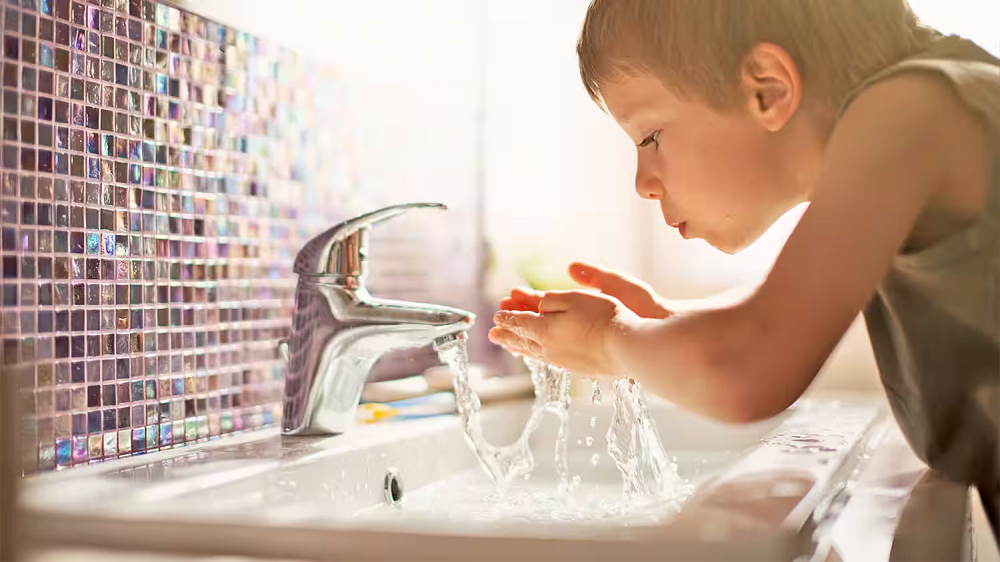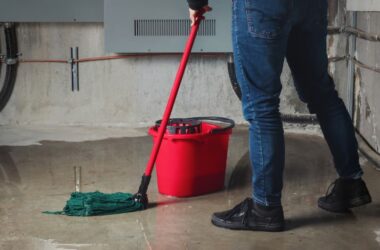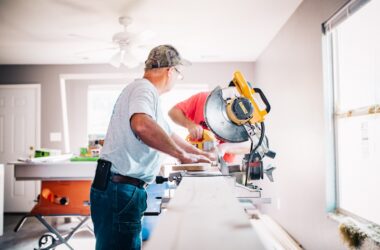When you’re faced with a slow drain, it’s easy to jump to conclusions, but there’s often more than meets the eye. You might assume a simple blockage, yet the truth is, multiple culprits could be lurking in your plumbing system. Hair, soap scum, and food particles might seem like minor nuisances, but they can conspire with grease, oil, and even tree roots to create a bigger problem. Have you ever considered how mineral deposits from hard water or improper venting might play a role. The plumbing experts at Plumbing, Drain and Rooter Pros put together a list of hidden issues that can save you time and prevent future headaches.
Hair Accumulation
When it comes to slow drains, hair accumulation often stands, quite frustratingly, as the main culprit. You mightn’t realize it, but every time you shower, strands of hair are likely slipping into the drain, gradually forming a tangled web.
This build-up restricts water flow, leading to those annoying, slow-draining situations. It’s not just long hair that’s the issue; short hair can accumulate over time too. Once hair collects, it acts like a net, trapping other debris and making the blockage worse.
To tackle this, start by checking your drains regularly. You can use a simple tool, like a drain snake, to pull out accumulated hair. It’s an affordable and effective way to maintain a clear path for water.
Consider installing a drain cover or screen to catch hair before it gets into the pipes. These covers are easy to clean and will save you from frequent clogs.
Soap Scum Build-up
Besides hair, another common reason for slow drains is soap scum build-up. When you wash with soap and water, the soap can mix with minerals in the water, especially if you have hard water, creating a residue known as soap scum. This sticky substance clings to the walls of your pipes and attracts other particles, gradually forming a thick layer that narrows the passageway.
As the build-up grows, it restricts the flow of water, leading to slow drains. You mightn’t notice soap scum accumulation at first, but over time, it can become a significant problem. You’ll see signs like a white or grayish film around your sink, tub, or shower.
If left unaddressed, this build-up can also cause unpleasant odors, as it traps other debris and organic matter, creating a breeding ground for bacteria.
To prevent soap scum, consider using liquid soap instead of bar soap, as it tends to leave less residue. Regularly cleaning your drains with a mixture of vinegar and baking soda can help break down soap scum.
Installing a water softener can also reduce the minerals in your water, minimizing soap scum formation.
Food Particles
Although you might be careful about what goes down your drain, food particles can still slip through and cause slow drainage. Even tiny bits from rinsing dishes or washing produce can accumulate over time. You might think your garbage disposal takes care of everything, but it doesn’t always break down food completely. Small remnants can cling to the sides of pipes, creating a sticky layer that gradually narrows the passageway.
When you flush food particles down the sink, they often get caught in the P-trap, that curved section of pipe beneath your sink. This trap holds water to prevent sewer gases from entering your home, but it can also become a catchment area for food debris. Over time, these particles build up, slowing the flow of water and causing a backup.
To prevent this, be mindful when rinsing dishes. Scrape food scraps into the trash or compost before washing. Using a drain strainer can help catch larger particles.
Regularly cleaning your disposal and flushing pipes with hot water and baking soda can also help break down and dislodge any trapped particles, keeping your drains clear and efficient
Grease and Oil
Grease and oil are notorious culprits for slow drains. When you pour these substances down your sink, they might seem harmless in their liquid form. However, once they enter your plumbing system, they quickly cool and solidify. This can lead to sticky, stubborn buildups that cling to your pipes.
Over time, these deposits can grow thicker and more problematic, reducing water flow and causing frustrating slow drains.
You might think that hot water or soap can wash them away, but unfortunately, that’s not the case. While hot water might temporarily liquefy the grease, it’s not enough to completely clear the buildup. As the water cools further down the pipes, the grease can harden again, contributing to the issue.
Soap, too, can mix with grease, creating a soapy residue that exacerbates blockages.
To prevent this, avoid pouring grease or oil down the drain in the first place. Instead, collect these substances in a container for proper disposal.
Keeping your drains clear of grease can save you significant time and money on plumbing repairs. Remember, prevention is always easier than dealing with the mess later on.
Foreign Objects
When it comes to slow drains, foreign objects are often to blame. You’ve probably experienced a sink or shower drain that just wouldn’t clear as quickly as it should. This sluggishness can often be traced back to items that have no business being in your pipes.
Whether it’s a stray cotton swab, a piece of jewelry, or a clump of hair, these items can obstruct water flow considerably.
In the bathroom, hair is a frequent culprit. It easily slips down the drain, tangles, and forms a blockage. Over time, the hair mixes with soap residue, making the clog even worse.
In the kitchen, leftover food particles, bits of packaging, and even utensils can find their way into the drain, causing similar issues.
You might think small objects won’t pose a problem, but they can accumulate quickly. The key is prevention. Use drain covers to catch debris before it becomes a bigger issue.
Be mindful of what you wash down the drain—if it’s not liquid, it shouldn’t go in there. Regularly check and clean your drains to confirm that foreign objects aren’t slowing things down.
Stay vigilant, and you’ll keep your drains flowing smoothly.
Mineral Deposits
Have you ever noticed your water flow slowing down, even when there’s no visible clog? You might be dealing with mineral deposits.
Over time, minerals like calcium and magnesium, commonly found in hard water, can gradually accumulate inside your pipes. These deposits, also known as scale, build up and reduce the diameter of your pipes, effectively narrowing the space for water to flow through. This restriction can notably slow down your drains without an obvious blockage.







